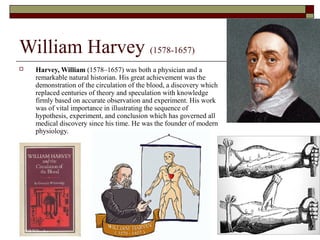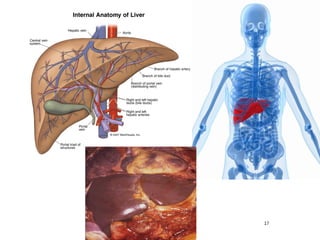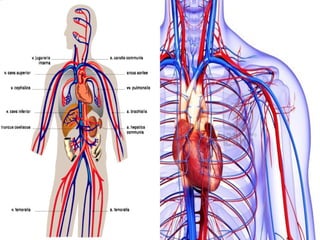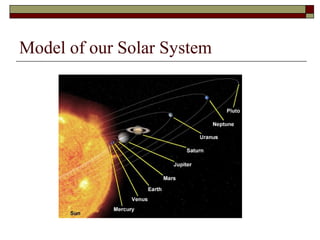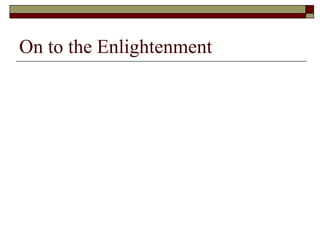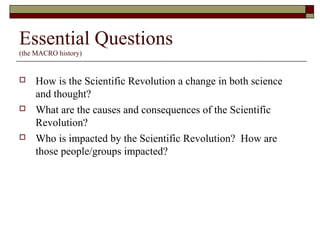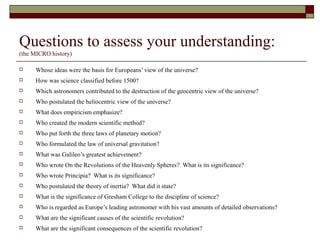The Scientific Revolution occurred between 1540-1690 and marked a change in both science and thought. Key figures like Copernicus, Galileo, Kepler, and Newton challenged the existing geocentric view of the universe and developed the scientific method. Their work established a heliocentric model of the solar system and formulated laws of motion and universal gravitation. This revolution shifted views on the relationship between science and religion and had wide-ranging impacts on how people understood the natural world.
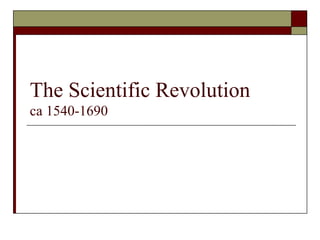
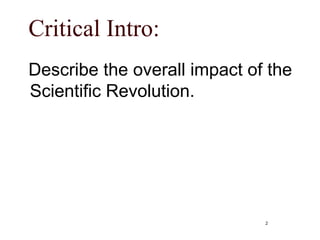
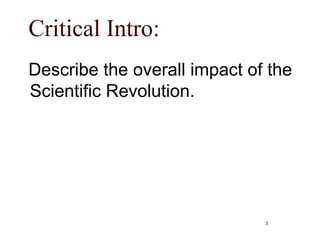
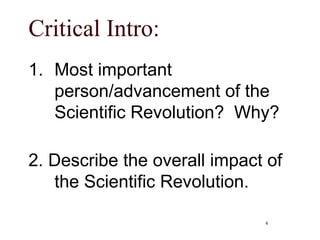
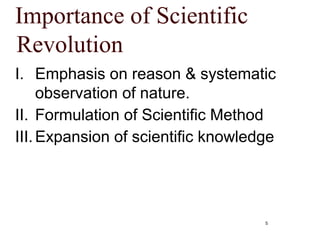
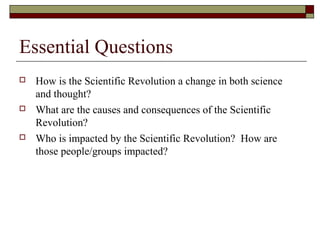
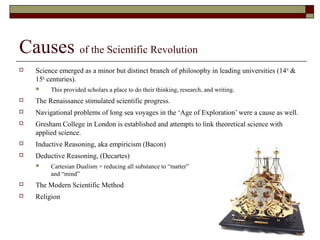
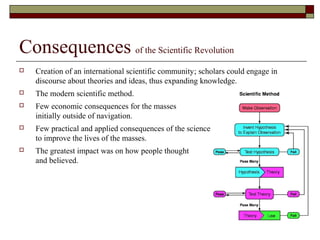
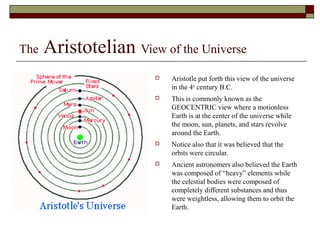
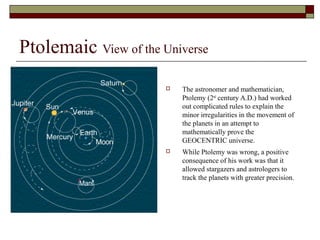
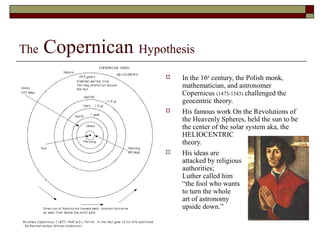
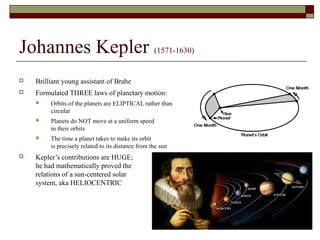
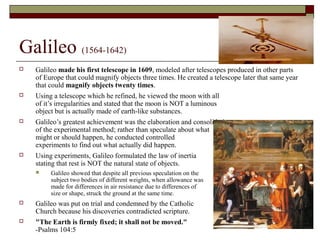
![The Newtonian Synthesis
“If I have seen further [than others], it is by standing on the
shoulders of Giants.” (Newton) 1642-1727
Published Principia in 1687 which postulated the law of universal gravitation. This
synthesized the astronomy of Copernicus, as corrected by Kepler’s laws, with the physics of
Galileo.
According to this law, every body in the universe attracts every other body in the universe in
a precise mathematical relationship, whereby the force
of attraction is proportional to the quantity of matter of
the objects and inversely proportional to the square of the
distance between them.](https://image.slidesharecdn.com/scientificrevolutionpp-150123093734-conversion-gate01/85/Scientific-Revolution-14-320.jpg)
